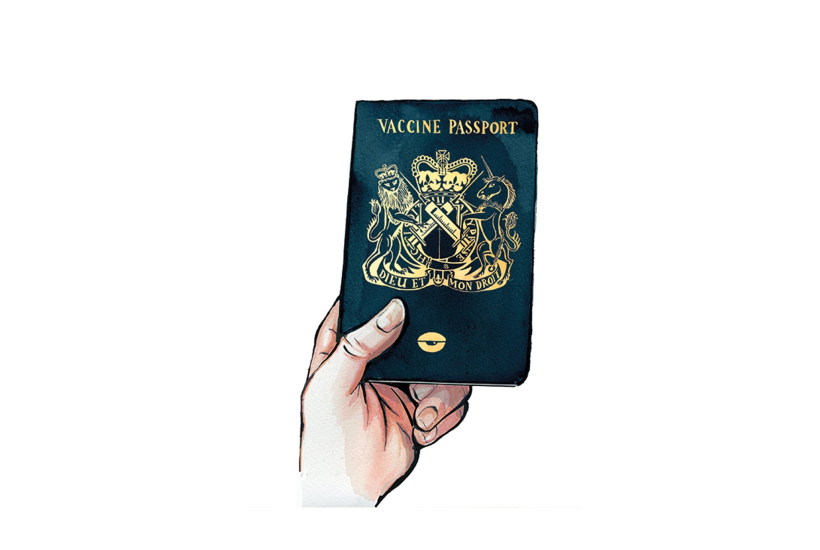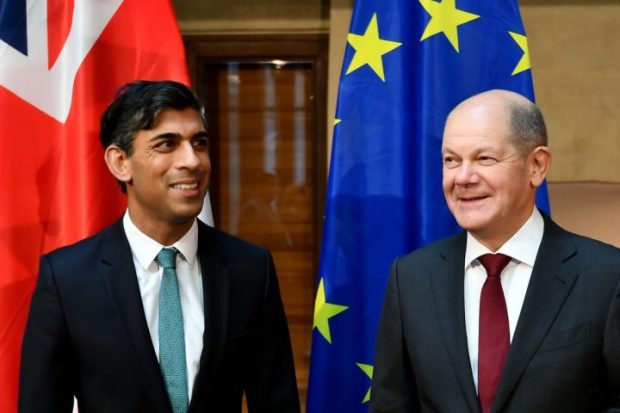What’s the one idea that can’t be debated at a festival of ideas? The answer, it turns out, is the Covid Pass.
I was delighted to be asked to give a book talk and join a debate at How The Light Gets In, the world’s largest festival of philosophy and music. I checked the website to ensure there were no discriminatory Covid Pass policies and agreed. So, I was surprised when someone who had bought tickets told me that they had cancelled their tickets because the festival had imposed the policy.
I have withdrawn from the event. I would like to attend (I’ve enjoyed it before) and debate the ideas of our time, but Covid passports are discriminatory and illiberal, There is no strong scientific case for their use and I don’t wish to participate in an event that endorses them.
I would have made these points in ‘Playing With Fire’, the debate about safety and risk at which I was supposed to speak. Sociologist and author, Frank Furedi, has withdrawn from the same debate. Meanwhile, Silkie Carlo, the director of Big Brother Watch, has withdrawn from a debate about big tech and democracy for the same reason. I know other high-profile speakers are following suit. What could be more typical of the age of Covid: event organisers are trying to put on lively discussions about freedom vs safety, but their own restrictive Covid policies mean they can’t get decent voices on the side of liberty.
One of the organisers of How The Light Gets In told me they had introduced the policy to make the audience ‘feel safe’. Although I respect that they wanted to reassure ticket buyers, I find it difficult to respect the voluntary adoption of a controversial and unjustified policy that will exclude both audiences and speakers.
To be fair, How The Light Gets In has tried to adopt a broader approach, by allowing a negative test result or proof of prior infection. There are still issues with this approach — which I can’t trouble this article with — but, regardless, the organisers promote and favour the Covid Pass, describing it as ‘the easiest way to identify your Covid status is with a Covid Pass’.
As data from the UK and other highly vaccinated countries now shows, the vaccine does not necessarily stop you transmitting the virus, which undermines the idea that Covid passports are an effective way to prevent the spread of Covid.
Vaccines protect the vaccinated from serious disease. Once someone is vaccinated they can enjoy the protection that the vaccine confers, then it should make no difference to them if others are vaccinated or not. If people choose not to get vaccinated, they bear the risk, not those around them.
The government has failed to make a convincing scientific case for Covid passports to Parliament’s Public Administration and Constitutional Affairs Committee (PACAC). Since then, it appears that the UK government is not even pretending to ‘follow the science’ anymore. The Covid Pass may end up registering vaccine status alone, not natural immunity from prior infection. The largest real-world observational study (in pre-print) comparing natural and vaccine-induced immunity to SARS-CoV-2 concludes: ‘Natural immunity confers longer lasting and stronger protection against infection, symptomatic disease and hospitalization caused by the Delta variant of SARS-CoV-2, compared to the BNT162b2 two-dose vaccine-induced immunity.’
PACAC also urged the government to produce a cost-benefit analysis, full financial costings and detailed modelling of the potential impacts. The government has failed to do so. The report also found the Covid passports to be discriminatory on the basis of race, religion and socio-economic background and expressed concerns over data protection and privacy.
If there is no scientific justification for Covid Passes, are we left with a behavioural science motivation? Is the Covid Pass simply designed to force uptake? Aside from how that affects informed consent, it’s a strategy that may miscarry. Countries that have introduced Covid passes show an immediate gain in compliance with vaccination, yet a cohort of people are deterred by the coercion. ‘A Cross-Sectional Study in the UK and Israel on Willingness to Get Vaccinated against COVID-19’ found that vaccine passports are backfiring because, unsurprisingly, people want autonomy over their bodies. Not only will the bullying and resultant mistrust impact Covid-19 vaccine uptake, but the boosters and, possibly, other public health initiatives.
If we don’t want a ‘medical papers, please’ checkpoint society, then we have to refuse to comply where we can, despite the cost to ourselves. I don’t want to self-aggrandise my part in the pushback. The cost to me is an enjoyable event, delivering a book talk and the resultant book sales. But in Victoria, Australia it might be ‘participating in the vaccinated economy’ or accessing healthcare. In France, it’s simply sitting at a pavement cafe. Where might it end? This will not go away unless we stand against the unjustified erosion of our freedoms and stand with the excluded. I can’t in all conscience participate in a festival of ideas that rejects ideas at the turnstile.
<//>
Got something to add? Join the discussion and comment below.
Get 10 issues for just $10
Subscribe to The Spectator Australia today for the next 10 magazine issues, plus full online access, for just $10.




















Comments
Don't miss out
Join the conversation with other Spectator Australia readers. Subscribe to leave a comment.
SUBSCRIBEAlready a subscriber? Log in